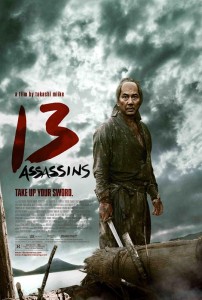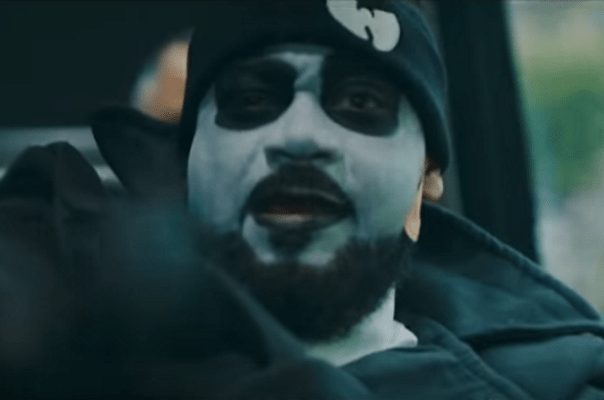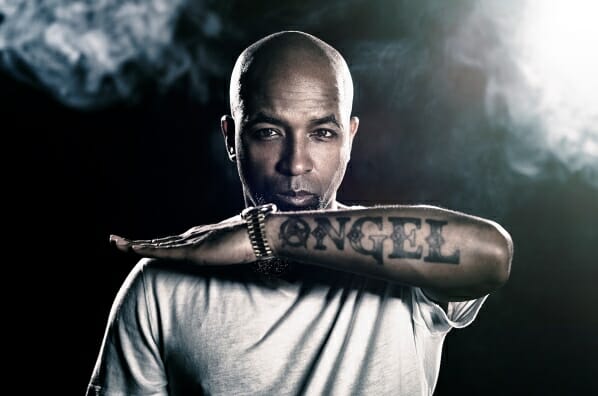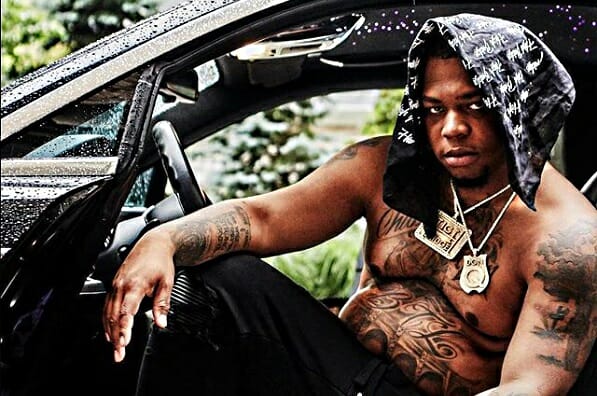13 Assassins is a remake of the 1963 jidaigeki classic of the same name. It was directed by Takeshi Miike, who has long been the darling of gore aficionados worldwide. Regarding him in such terms reveals a shallow understanding of his filmography, as it encompasses more than shock horror. Those who have a considerable tolerance for violence and an appreciation for mannered drama will get the most out of 13 Assassins. It is a traditional Samurai epic in many regards, but it also reflects the dark and ponderous nature of its maker.
Takashi Miike’s style disappears into the dark and murky visual waters of the film. There is no pageantry on display here. 13 Assassins does not revel in the cosmetic beauty of the Japanese countryside; visually, it trudges through a lonely and endless swamp, offering no respite. Times are hard, and the time of fabled warriors is in its twilight. The dirge-like presentation is similar to the one used in Deconstructionist Westerns. Miike and his cinematographer Nobuyasu Kita do not want us to revel in the noble exploits of the samurai. They want the mist of rain and the stain of blood on our faces.
The first half is deliberately paced, while the second erupts in the clashing of swords and the thud of bodies hitting the ground. It is disorienting, but there is order to the chaos. As the 13 Assassins take on an army of hundreds, the confusion of war is in full display. Strategically, the characters are always either surrounded or on the run. Martial arts films sometimes depict a lone hero laying waste to dozens of opponents with an air of nonchalance, but Miike envisions such confrontations differently, with the heroes always a millisecond from being ran through or sliced in half by a katana.
Like the American cowboy, the exploits of the samurai have always been presented in popular culture with an air of glory and honor. 13 Assassins portrays the samurai’s sense of duty as a dogmatic code that sometimes defies logic and true heroism. If a samurai gives his life in defense of a corrupt master, is his death truly an honorable one? The characters of 13 Assassins also have an acute awareness of the pleasures found in leading the life of an ordinary citizen. This cognizance makes their plight all the more saddening.
Although the concluding battle lasts for over 45 minutes, it feels twice as fast. The only real flaw is that the antagonists become indistinguishable from each other at points. Only in the rare moments that focus on certain characters facing off against each other is the viewer allowed to collect their bearings and identify with an individual as opposed to the group. Miike keeps things moving fast enough that this problem does not hinder the films momentum.
Though its themes are a bit too heavy to facilitate a thrilling adventure film, 13 Assassins provides ample amounts of combat and bloodshed. Western fans of martial arts swordplay will get exactly what they crave, though with a different sensibility and style than they are used to. Takashi Miike’s methods may be too extreme for some, but he is undoubtedly a thinking man. The cathartic release of graphic violence and the bold display of carnage is not all he has to offer. Those who are brave enough to endure 13 Assassins will find themselves pondering its themes long after the credits have rolled.



![]()
3.75 Out of 5
Follow Malice Intended on Twitter @ http://twitter.com/renaissance1977
Follow Us on Twitter @ http://twitter.com/planetill
Join Us on the Planet Ill Facebook Group for more discussion
Follow us on Networked Blog






One thought on “Movie Review: 13 Assassins”